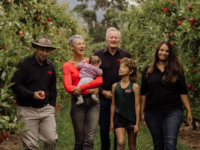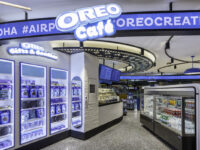Come December, when farmers near Cape Town harvest rooibos leaves, they will become the first generation to grow and sell a tea with a unique regional status, a designation awarded to other such products as French Champagne or Irish whiskey.
The rooibos tea, whose name means “red bush” in Afrikaans – the language of South Africa’s earliest European settlers – was the first African product to get such a status in the EU in June.
Farmers and agriculture experts now hope the EU’s treatment of rooibos could help boost demand and improve the crop’s profitability.
These rosemary-type shrubs are indigenous to a small area of the drought-prone Western Cape and Northern Cape provinces.
“We expect there to be a considerably bigger market so definitely we will expand now that there is more stability and economic viability,” said 61-year old Deon Zandberg, a manager at Vanrhynsdorp farm.

Rooibos – commonly drunk as a tea, infused in drinks and used in beauty products – dates back hundreds of years to South Africa’s Cederburg region where it grows naturally and has become more popular over the years.
Grown over 70,000 hectares of land, the industry produces around 15,000 tonnes of rooibos annually, with half of that exported to countries like Japan, Germany and the Netherlands.

The sector is made up of around 350 commercial and 100 emerging farmers, who have battled dry conditions for successive years that have dented yields and drove prices higher.
Industry officials were now working on getting similar protected designations of origin for rooibos from the World Trade Organization.

“With more value, it means farmers can invest more in sustainable farming,” said South African Rooibos Council director Dawie de Villiers.
He hoped the EU nod would mean rooibos could be sold at a premium much like champagne when compared with other sparkling wines.
- Writing by Tanisha Heiberg, Editing by Promit Mukherjee and Angus MacSwan, of Reuters.








